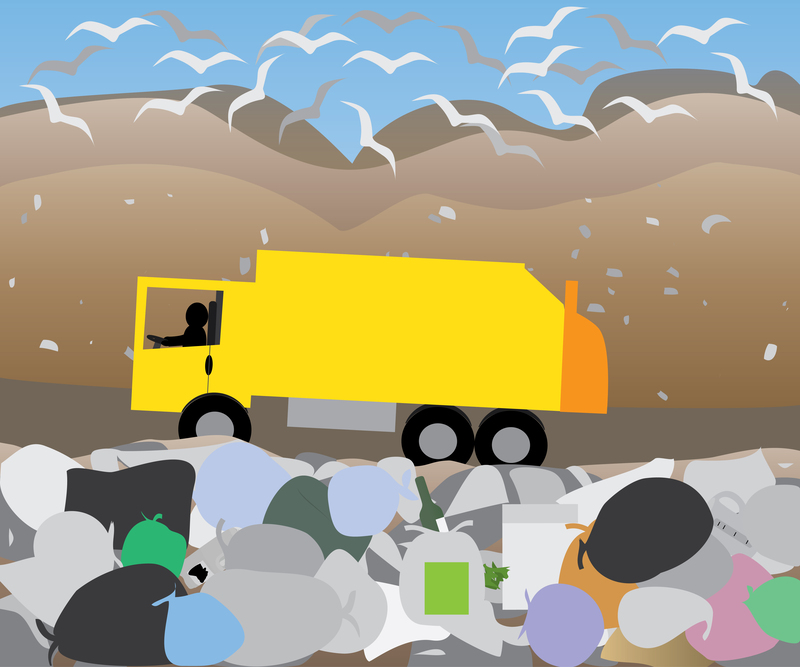Reducing Environmental Impact by Disposing of PPE the Right Way
The COVID-19 pandemic has triggered an unprecedented surge in the use of personal protective equipment (PPE), such as face masks, gloves, face shields, and gowns. While these items play a pivotal role in safeguarding public health, they also generate immense waste that threatens the environment. This article explores eco-friendly PPE disposal, providing readers with actionable steps and insights for reducing environmental impact through responsible PPE waste management.
Understanding the PPE Waste Crisis
In today's world, PPE has become an everyday necessity in healthcare, workplaces, and even daily public life. Unfortunately, the majority of single-use PPE is made from non-biodegradable plastics, such as polypropylene.
These items accumulate rapidly in our waste streams, contributing to landfill expansion and environmental pollution. Millions of discarded masks, gloves, and other protective items are now common sights along roadsides, beaches, and in our waterways.
- Face masks can take up to 450 years to decompose in landfills
- Improperly disposed of PPE often ends up in oceans, causing harm to marine life
- PPE litter disrupts natural ecosystems and may introduce microplastics into the food chain

Why Proper PPE Disposal Matters
Responsible PPE disposal is critical to reducing environmental impact and safeguarding community health. Improperly managed PPE poses the following risks:
- Environmental Pollution: Disposable masks and gloves break down into microplastics, which contaminate soil and water.
- Wildlife Hazards: Animals may mistake PPE for food, causing injury or death from ingestion or entanglement.
- Disease Transmission: Used PPE can carry dangerous pathogens, posing a continual threat if not disposed of safely.
To reduce the detrimental effects of PPE waste, adopting the right disposal strategies is not only beneficial for sustainability but essential for public well-being.
Types of PPE and Their Environmental Impact
1. Face Masks
Most disposable face masks are made from layers of non-woven plastic fabric. When discarded, these can:
- Persist in the environment for centuries
- Release microfibers into waterways
- Clog sewage and drainage systems
2. Disposable Gloves
Latex and nitrile gloves are used for protection but are also culprits in plastic pollution:
- Latex gloves: Biodegradable, but decompose very slowly in landfill conditions
- Nitrile gloves: Durable but completely non-biodegradable
3. Gowns and Aprons
Generally made from plastics, disposable gowns and aprons contribute to BPA and phthalate pollution if incinerated or left to degrade.
4. Face Shields and Goggles
These are made of thick plastic, making recycling difficult but not impossible with proper technology.
Eco-Friendly Options and Alternatives to PPE
Reducing the environmental impact caused by PPE begins with considering alternatives and selecting the right products where possible. Here are some ways to reduce PPE waste at the source:
- Reusable Masks: Cloth masks can be washed and reused, significantly lowering waste output.
- Biodegradable Gloves: Opt for gloves made from plant-based materials that break down safely.
- Reusable Gowns and Shields: Healthcare facilities and businesses can invest in durable, disinfectable gear.
- PPE Recycling: Choose brands and suppliers that offer take-back programs or use recycled materials.
Whenever possible, favor reusable and recyclable PPE products to drastically reduce single-use plastic consumption.
PPE Disposal: Step-by-Step Best Practices
To minimize environmental harm, disposing of PPE the right way involves following a few simple, effective guidelines:
1. Never Litter or Flush PPE
- Littered PPE can blow into waterways and parks, becoming a hazard to wildlife and people.
- Never flush masks, gloves, or wipes down the toilet as they clog pipes and pollute water systems.
2. Use Designated Bins
- Dispose of used PPE in covered, lined waste bins to avoid accidental contact.
- If possible, separate PPE from general waste to streamline collection and treatment.
- Encourage workplaces, schools, and facilities to provide PPE-only bins, clearly labeled for proper use.
3. Secure and Seal Waste Bags
- Tie waste bags holding PPE securely before disposing of them, preventing spillage and animal access.
- For sick or quarantined individuals, double-bag used PPE to further prevent potential contamination.
4. Consider PPE-Specific Collection Programs
- Research if your local council or community offers special PPE recycling or collection points.
- Some organizations, like TerraCycle, offer mail-in PPE recycling solutions for businesses and homes.
5. Recycle When Possible
- Some industrial recycling centers now process certain types of PPE plastics. Check regulations in your area.
- Never place contaminated PPE in your standard recycling bin unless your local provider accepts it.
6. Practice Good Hygiene When Disposing of PPE
- Always wash your hands after handling used PPE.
- Avoid touching your face or other surfaces after removing PPE until hands are thoroughly cleaned.
Innovations and Solutions in PPE Waste Management
Several organizations are advancing efforts to reduce environmental impact by disposing of PPE the right way. Solutions include:
- PPE Recycling Programs: Businesses such as PPE Exchange and TerraCycle transform masks and gloves into raw materials for new products.
- Biodegradable PPE: Manufacturers are innovating with compostable materials, reducing long-term waste.
- Energy Recovery: Some facilities incinerate PPE with strict emissions controls to generate electricity.
- Awareness Campaigns: Community groups and environmental organizations run campaigns about responsible PPE use and disposal.
Case Study: Healthcare Facilities Leading the Way
Many hospitals worldwide are adopting new protocols for PPE disposal, including dedicated waste streams and partnerships with recycling firms. For instance, UK's National Health Service (NHS) is piloting mask recycling schemes, converting them to building materials, while major hospital networks in the US have introduced smart bins to track and sort PPE waste efficiently.
Government Policies and Global Initiatives
Governments around the world are recognizing the threat of PPE pollution and introducing new guidance and regulations for environmentally responsible PPE disposal. Examples include:
- Guidelines for separating infectious from non-infectious PPE waste
- Incentives for using reusable PPE products in non-clinical settings
- Funding for PPE collection and recycling infrastructure
- Research investments into biodegradable PPE development
By following these government protocols and supporting new legislation, the environmental burden of PPE can be significantly reduced.

What Individuals and Organizations Can Do
Everyday Actions for Reducing PPE Waste
- Opt for Reusable PPE wherever feasible
- Educate family, friends, and colleagues about responsible PPE use
- Designate a special PPE waste container at home and work
- Participate in or organize local PPE cleanup drives
- Choose products from environmentally responsible brands
Businesses and Institutions
- Provide guidance and facilities for safe PPE disposal on premises
- Engage with vendors that supply sustainable PPE
- Regularly audit waste streams to ensure compliance and identify areas for improvement
- Implement employee training on reducing environmental impact through proper PPE disposal
Community and Government Collaboration
- Support local government initiatives for PPE collection
- Advocate for better infrastructure and recycling options in your area
- Partner with environmental groups to promote safe PPE handling in public spaces
Conclusion: Towards a Greener, Safer Future
As we navigate a new era of global health awareness, embracing environmentally friendly PPE disposal practices is a collective responsibility. Each deliberate action--whether that's choosing reusable options, educating others, or following the correct waste protocols--significantly reduces our individual and community footprint.
By disposing of PPE the right way, we help prevent pollution, protect wildlife, conserve resources, and chart a path toward a more sustainable, environmentally conscious future. Let's transform the challenges of today into opportunities for a cleaner world, one responsible choice at a time.
Start making a difference now. Encourage responsible disposal habits in your home, workplace, and community--and be a champion for both public health and the planet.